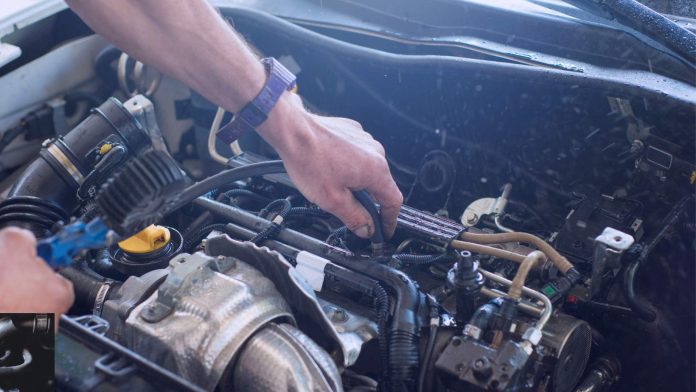The diesel fuel pump plays an integral role in keeping your car or truck running smoothly and efficiently for many years to come. By understanding how this vital component works, you can make sure your vehicle receives proper maintenance so that you don’t have to worry about breakdowns or costly repairs down the line. Keeping up with regular maintenance on your diesel-powered vehicle’s fuel pump will ensure that your car or truck will be running strong for years to come!
Let’s take a look at the workings of a diesel fuel pump in detail.
The Parts of a Diesel Fuel Pump
A diesel fuel pump contains several parts that work together to transfer fuel to the engine. The most important part of the pump is its rotor, which is made up of two lobes. These lobes rotate cyclically and create low-pressure areas between them, drawing in liquid fuel from the tank above them. As they cycle, more air is drawn into the pump and mixed with the liquid, creating an atomized spray that can be injected into the engine at high pressure. This spray is then ignited to generate power.
Working Of Diesel Fuel Pump
A diesel fuel pump is a rotary pump that draws the diesel fuel from the tank and pushes it through a filter before delivering it to the injectors. The pump has several internal components, including a pressure relief valve, diaphragm assembly, and check valves. Together, these components work together to ensure that the right amount of fuel is delivered to the engine at all times.
The pressure relief valve prevents too much fuel from being pumped into the engine, while the diaphragm assembly operates as both an intake valve and a pressure regulator. This assembly controls how much fuel is drawn in from the tank and regulates its delivery pressure. Finally, check valves are used to prevent any backflow of fuel from entering into other areas of the system where it could cause damage or leaks.
Another important component of the diesel fuel pump is its governor spring. This spring helps keep the engine running at a steady speed by controlling how much fuel is injected into it at any given time based on how fast it is running. If you want your diesel-powered vehicle to run smoothly and efficiently for years to come, it’s crucial that you maintain your diesel fuel pump properly by replacing any worn or damaged parts as soon as possible.
The Benefits of Using a Diesel Fuel Pump
Diesel engines are known for their durability and reliability, especially compared to gasoline engines which can be much less reliable depending on their condition or age. Part of this durability comes from using diesel fuel pumps which provide higher compression ratios than gasoline engines, as well as improved torque delivery due to their atomized spray injection system. Additionally, because diesel pumps don’t rely on spark plugs as gasoline engines do, they tend to start easier and require less maintenance overall.
Conclusion
Diesel fuel pumps are an essential part of any diesel engine’s operation, and their importance should not be overlooked when maintaining your vehicle or considering purchasing one with a diesel engine instead of a gasoline one. With proper maintenance and calibration, these pumps can provide years of reliable service while helping you save money on gas mileage as well as reducing your environmental footprint by burning fewer fossil fuels than traditional combustion engines do! So keep this information handy next time you need help understanding how your vehicle works!










